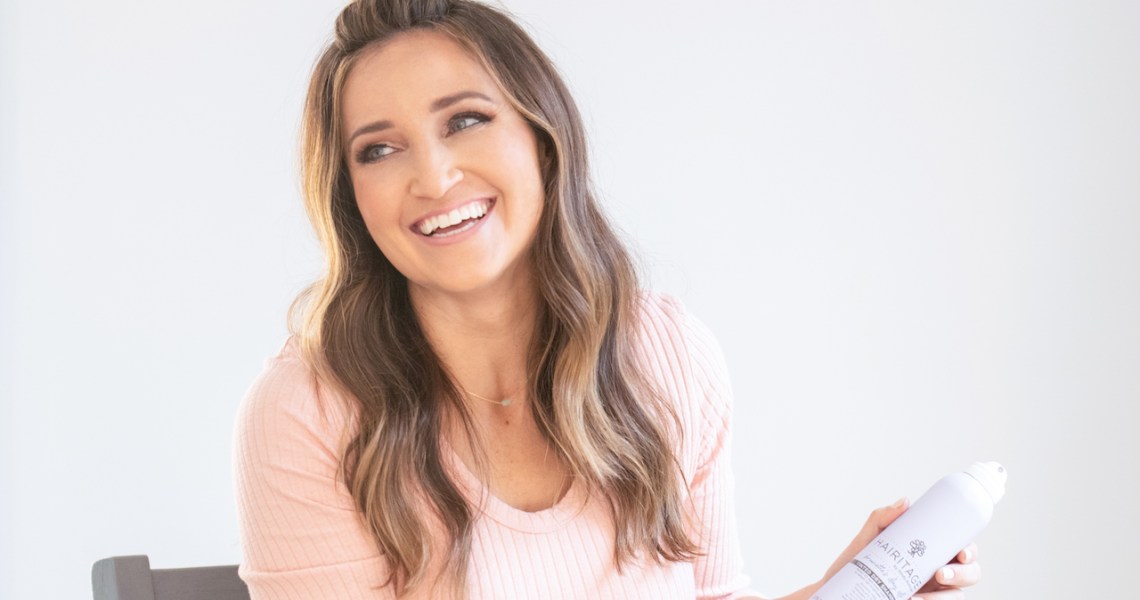Last year, influencers became beauty brand founders at a faster clip. While the staying power of the TikTok bunch is still unknown, an influencer’s organic digital footprint can translate into big business.
Mindy McKnight just happens to be one of those new entrepreneurs with a sticky audience. Best known for her hair tutorials on YouTube, McKnight launched her clean hair brand for all hair types, Hairitage, just prior to the pandemic in February 2020. Hairitage became the first digitally native social influencer beauty line sold at Walmart last year. Despite Covid-19 upending shopping behavior in all categories, especially beauty, Hairitage’s footprint has grown. The brand started with 16 products at launch and is expanding with more shampoos, conditioners and hair masks, as well as hair tools and accessories. The additional shampoos, conditioners and hair masks will officially launch in all Walmart stores by February 1, and hot hair tools and accessories will debut in April. By the end of that month, Hairitage’s assortment will grow to 65 products. Industry sources said that Hairitage did $30 million at retail in its first year and is expected to double to $60 million in 2021.
“Our launch was really successful, and we’ve been pleasantly surprised by the numbers we’ve been pulling in. We were only a month in pre-Covid, but thankfully we were in Walmart. We used our strategy of digital storytelling and messaging to shift quickly, to reflect what customers wanted to see,” said McKnight of the messaging of self-care. Hairitage was created with with beauty brand incubator Maesa.
McKnight has built-in authority within the hair category. She is the No. 1 most-followed mom and one of the top 25 women on YouTube, with over 5.6 million followers. With six children (her two adopted children have textured hair), she is well-versed in different hair types. McKnight said her average customer is women ages 25-45, who are single or have children.
Although shopping patterns in beauty were affected in Walmarts across the U.S. at the start of the pandemic (the front doors to the beauty department were closed to emphasize essential items), McKnight’s prioritization of hair care as self-care helped the brand overall.
“The traffic pattern in the store did change, but my team did a really good job of talking about moisturizing and deep care with our hydration products like shampoos and conditioners [on YouTube, Instagram and Instagram Reels]. We saw a big lift in those sales, even though sales in our styling products slowed down a little,” said McKnight.
“Walmart is changing the game as far as who [is becoming] a beauty shopper at Walmart. [McKnight] has a halo effect on the whole store, so Musab [Balbale, Walmart vp of omnichannel beauty] and his team are very much putting that at the forefront of everyone. They want the innovation and they’re definitely looking to shake it up,”said Megan Fay, vp of marketing and product development for hair care at Maesa.
One way that Walmart is doing this is by featuring McKnight’s line holistically in stores, rather than separating shampoos and conditioners from the tools or accessories.
Although the U.S. market for hair tools and appliances declined by 1% in 2020, brought down by a slump in blow dryer purchases, according to Kline Group, both McKnight and her beauty brand incubator Maesa feel set up for growth. “One of Mindy’s best tutorials during the pandemic was how to do prom hair, even though prom wasn’t really happening all over the U.S.,” said Fay.
To emphasize both the functionality and premium quality of the tools, McKnight said customers will be able to pick up and feel products at Walmart, an offering the retailer will be testing. This has historically not been a feature in mass beauty retailers.
“I wanted to bring something as high quality and beautiful as something you’d see in Sephora, but make it attainable to the mass audience,” she said. “Getting the experience right was a big part of it.”




